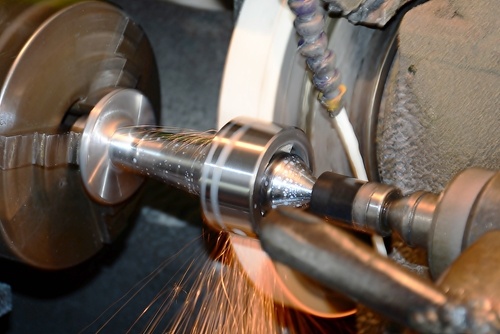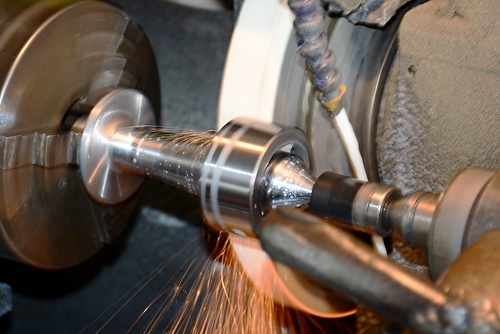
The economy, for all intents and purposes, is back on track. Jobs are up, unemployment is down and more individuals are in the market in search of work, optimistic that they’ll finally find what they’ve been looking for. And whether their new work home is in the factory or the warehouse, the manufacturing industry in particular is riding high, with both production and employment on the rise.
In April, economic activity in the manufacturing sector rose, the 95th consecutive month in which it’s done so, according to newly released figures from the Institute for Supply Management.
Production intensified in April, registering nearly 59 percent on ISM’s Production Index, up 1 percent from March, the report said. Thanks to greater demand, inventories also rose, with raw materials climbing to 51 percent, compared to 49 percent during the previous month.
In the U.S. as a whole, employers added 211,000 jobs to the economy in April, according to the U.S. Department of Labor. This helped push the unemployment rate to 4.4 percent, now at a 10-year low.
Manufacturers Working More Hours
Helping to push joblessness down was the manufacturing sector. Like other major industries, employment growth was somewhat tepid compared to previous months, but workweeks edged higher, averaging 40 hours per seven days, well ahead of the nationwide average of 33.7 hours in April, the Labor Department reported.
The manufacturing sector is composed of several sub-groups, such as furniture, plastics, fabricated metal and paper products, among others. Of the 18 manufacturing industries measured by ISM, 16 reported growth in April.
Bradley Holcomb, ISM chairperson, noted that spring really came in like a lion for warehouse management and other workers in the manufacturing supply chain.
“New orders, production, employment and inventories of raw materials [were] all growing in April over March,” Holcomb said.
Optimism at 20-year High
Manufacturers are highly optimistic about the economy and what the greater industry holds for them in the coming months. In a recent survey conducted by the National Association of Manufacturers, 93 percent of respondents indicated they felt positive about what lies ahead. That’s the highest point in the survey’s 20-year history, and well above the 56.6 percent who were optimistic this time last year and up from 78 percent in December.
Jay Timmons, NAM president and CEO, said small manufacturers are particularly heartened about what lies ahead, thanks to regulatory strictures being less intrusive.
Still, manufacturing has plenty of room for growth. Indeed, nearly 80 percent of Americans think the U.S. ought to invest more into the industry than it does currently, according to a separate survey performed by the NAM, in partnership with Deloitte, a multinational professional services firm.
Seema Pajula, vice chairman of industrial products at Deloitte, referenced how the modern-day warehouse – which uses data collection for various production and inventory management purposes – has adapted over time. This is part of the reason why manufacturing is in good shape.
“More people understand modern manufacturing is high-tech,” said Pajula. “They expect jobs to involve innovation and advanced technology in the future, which is progress for the industry in realigning the image of what modern manufacturing looks like to the general public.”
Though manufacturing was once considered a predominantly blue collar profession, a substantial portion of the nation’s public believes the industry will require more workers with specialized skills. Indeed, 88 percent of respondents in the NAM survey said the future of manufacturing will necessitate greater technical prowess, with 77 percent believing less manual labor will be involved.
High-tech may be the wave of the future, but Americans largely believe that it’s the stuff of the present. Approximately two-thirds of the NAM poll’s participants said manufacturing was currently a high-tech industry, up from 43 percent in 2014.
The dependence on high-tech solutions for continued manufacturing growth necessitates automated data collection and integration tools. RFgen mobile solutions specialize in providing manufacturers with the equipment that’s necessary to streamline the allocation and supply chain management process. Quality control is back in manufacturers’ control with RFgen fueling their receiving inventory management processes.






